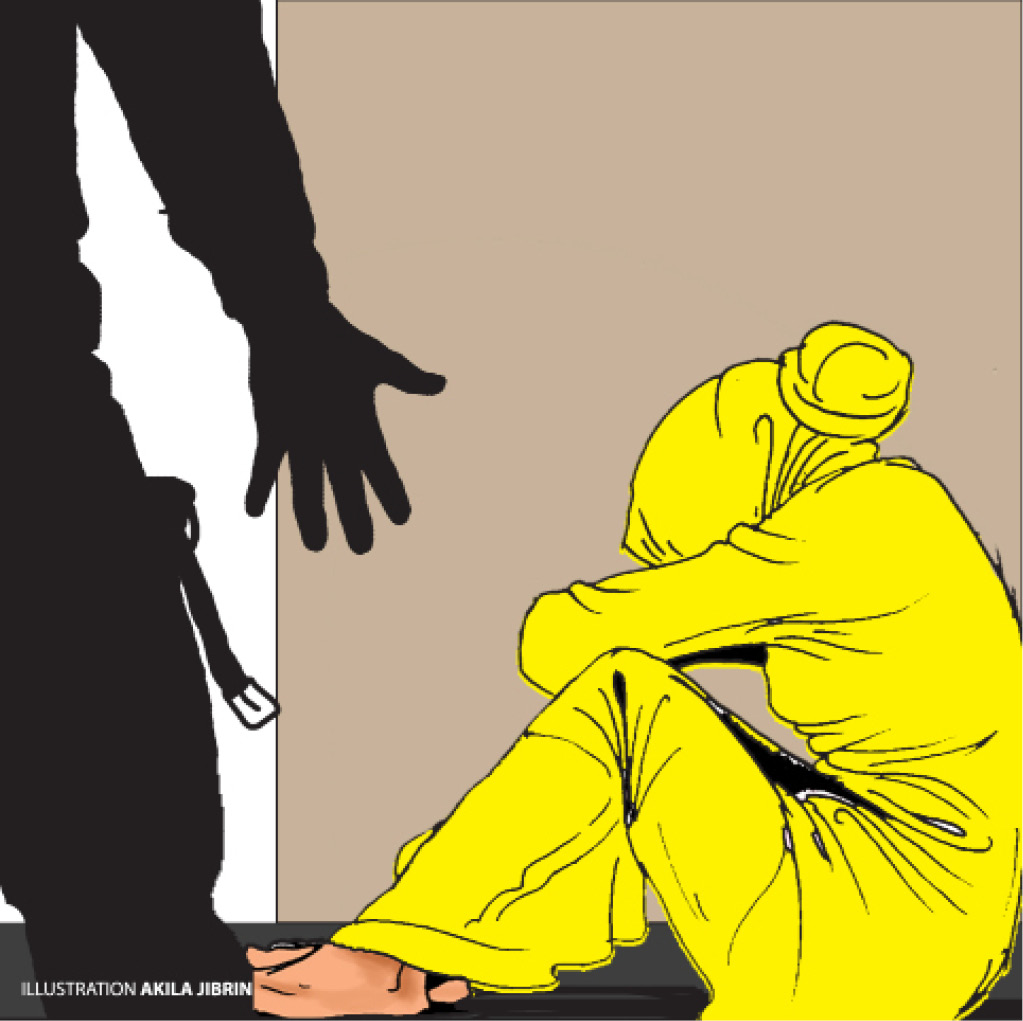In his contribution to the debate, on the castration law passed by the Kaduna State House of Assembly, my senior colleague and former fellow member at the Daily Trust Editorial board, Mr Idang Alibi, truly took the wind out of my sails (pardon the cliche).
Mr Alibi, whom I call Oga Idang, was never a known male chauvinist nor was he into any kind of anti-women advocacy, when we used to meet every Thursday, to brainstorm on topics to editorialize on.
- Nollywood actor, teacher remanded for teen rape say prison not conducive
- Concerns over rising cases of rape in Wadata community, Makurdi
At the end of debates on a given topic, he would humorously say, “Are we to commend or condemn?” A question which inevitably brought laughter from the rest of us.
It was with great disbelief, therefore that I read a piece titled “Rape: The punishment is as horrible as the crime” written by him a fortnight ago.
In it Oga Idang went down memory lane, in fact as far back as Biblical days, to cite an example, from the story of a youth named Onesimus, on why castration as a punishment for rape is too harsh.
Apparently, there is a little known chapter in the Bible called the Book of Philemon. In this book was the story of the young man, a slave, known as Onesimus.
According to Mr Alibi, this young man ran away from his master, Philemon, a Greek slave-owner and sought shelter with the Apostle Paul in Rome.
After accepting Christianity and serving Apostle Paul for a while, the Apostle decided that it was time for Onesimus to return home to his master.
But Onesimus protested the decision on the basis that only one of two fates await him back home.
He’ll either be killed by bounty hunters or be branded ‘fugutivus’, that is a runaway slave, on his chest with a hot iron.
But Apostle Paul convinced Onesimus to return home to his master, after giving him a letter of appeal, on his behalf, to take to Philemon.
Needless to say this intervention worked. And I have no quarrel with it being called a great display of Christian diplomacy.
Even though it didn’t allow a young man the freedom he craved, it enabled him to return to his old life without undergoing the painful scarring punishment prescribed by the old Roman law.
My quarrel with Oga Idang’s position was when he sought to equate the fate of a runaway slave with that of a rapist.
A runaway slave is an innocent man seeking the freedom to live life as a free human being.
If the law says he commits a crime by running away from bondage that still doesn’t make him a criminal in the true sense.
Meanwhile a rapist is someone who forcefully violated another, mostly a female, through sexual assault.
This is a beast of a criminal and if he ends up with a punishment that brands him for life then it must certainly be well-deserved.
Now let’s see how Oga Idang argued his case against castration for rapists using this Biblical analogy.
“The story of the Kaduna State House of Assembly which recently enacted a law specifying castration for men found guilty of rape reminds me of the story of Onesimus who would have had to carry forever, a deforming scar and a life-defining evidence that would announce to anyone with whom he came in contact the message that: ‘’here comes a slave who tried to run away’’.
It reminds me of a horrible punishment which achieves practically no useful purpose other than to satiate our innate human desire for vengeance while the errant perpetrator of the crime is required to live with the scar forever.
Rape is, no doubt, a very horrible crime but to me, the punishment specified by the honourable men of the KSHA is as horrible as the crime it seeks to eradicate.
Castration, to me, looks like murder and non-murder combined and inflicted at the same time.
A castrated man is a living dead person. It is worse than serving a life sentence with hard labour and without parole.
It is also worse than death in that while you live, you the creation of God, are altered unalterably or irreversibly.
All of his life, a castrated man will carry on him a scar that tells everyone, ‘’here is a man who raped a lady.
He has been ‘de-manned’, ‘unmanned’ and is now manless’. Although he looks manly, he is, in fact, totally manless’’.
You will become a source of negative curiosity, jeers and mockery for life.
Children who do not even understand will hurl abuses at you any time you pass in their neighbourhood.
Even in death this man will still be remembered as the man who was made ‘unman’ or a non-man by the law of his country.
That type of law is cruel, uncivilized and will not even glorify God or the society we seek to please.
It is a recall of Stone Age cruelty and barbarism, unfit for a legislation to serve 21st century people….
In this 21st century, is it civilised and does it sound decent to castrate a man as a punishment for the crime of rape?
Let us leave that aside and consider the practically of its application or implementation.
Which doctor who took the Hippocratic Oath will agree to carry out such a court judgment?
May be, it will have to be a veterinary doctor who is used to castrating dogs! Since the story of this law broke, I have been wondering about it.
My mind has been in torture. Who between the rapists and the members of the KSHA is more decent?
It is clear that members of the KSHA were simply overtaken by foolish emotion not expected of men and women called upon to make laws to govern society.
They did not think deeply enough on this issue. Law makers are supposed to be self-controlled, intelligent, broadminded and unemotional.
Emotion does not solve any single social, political or economic problem. In fact it tends to compound problems as we have seen in this unwise law.”
Now what I can’t understand in Oga Idang’s argument is why there should be such great concern for the rapist.
What about his victim? Isn’t she going to live with an emotional and a physical scar all her life?
Will this woman, girl or even infant these days, ever forget the pain and agony of that violation by an animal who calls himself man?
So what if this man will remain ‘unmanned’ for the rest of his natural life, isn’t it better to destroy the one weapon he uses to destroy other lives than to let him be and enable him to continue his wild ways?
Just like disarming a potential murderer is the only way to stop him from killing, so is depriving rapists of their main weapon, the only way to keep them unarmed for life.
The other day I saw a video of a Dubai resident who was shot publicly, on a street, and his body lifted up with a crane for every one to see because he was caught red-handed defiling a five-year-old girl.
Now this is one sure-fire way to deter all potential rapists.
Meanwhile here we are arguing that getting rid of the offense weapon is such a big deal.
The very day after I read Oga Idang’s appeal on behalf of rapists, I saw no less than four rape news stories in the Daily Trust, two of them having minors as victims.
So how can we say that these people deserve any consideration when they show no mercy to their victims when they strike?
Until we find a more suitable punishment, I am all for castration of rapists because they are worse than beasts in their treatment of fellow human beings.
The only thing I’d call for is the need to prove their guilt beyond reasonable doubt, so that innocent people do not get punished for the sins of others.




